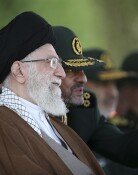Three threats to a free press

What ultimately defines a free press, in Korea or elsewhere, is its independence of judgment, a judgment made only with regard for what its readers, viewers and listeners need to know in order to govern themselves.
What ultimately defeats a free press, in legislatures and newsrooms alike, is a disregard for, or a misunderstanding of, the conditions required for independent judgment.
The judgments a free press makes will and should vary, of course, from community to community, from generation to generation. Judgments about good and bad, right and wrong choices about what to cover and what to ignore, what to celebrate and what to condemn, who to include and who to exclude shift, sometimes dramatically, over time and from one newsroom to the next. And that`s as it should be: independence of judgment usually means a diversity of judgments.
A free press, it follows, cannot be judged simply by the quality, and certainly not the quantity, of its content. As much as we might prefer otherwise, "free" judgments, as plentiful as they may be, are not always wise ones. Instead, freedom of the press needs to be judged in terms of the political, economic, and cultural forces that threaten it.
The first and arguably foremost threat to a free press the "political" threat is a coercive state, a government, at whatever level and in whatever form, that fails to create and sustain a formal and enduring separation between itself and the press. A coercive state can take many forms, from the vulgar (censorship laws) to the more subtle ("investigations" or "inquiries" that serve no apparent purpose other than to intimidate the press), but the intent remains the same: to substitute the judgment of politicians for the judgment of journalists.
But to recognize the importance of a formal and enduring separation between the state and the press does not amount to a rejection of any relationship between the two. On the contrary, the state can play any number of important roles in preserving and indeed expanding the opportunities for freedom of expression, including freedom for the press.
What better way for the state to express its commitment to a free and independent press than by insuring a strong and independent judiciary, one that is prepared to adjudicate disputes between the press and the state in ways that honor, or at least weigh heavily, neither the interests of the state nor the interests of the press but rather the interests of the public, especially the public`s interest in a robust and uninhibited exchange of information and ideas.
The state can also create statutory rights that enable journalists to do their job: rights of access to meetings and documents, for example. But perhaps the most important role the state can play in affirming its support for a free press is in the promulgation of laws and policies designed to protect the press from the kinds of private pressure that can be as devastating to press freedom as the most insidious forms of state censorship.
It is not always easy to acknowledge the "economic" threats to a free press, especially for journalists who have come to equate, as many have, free markets with free societies, but in the final analysis a truly free press is a press as free from the whims of the marketplace as it is free from the demands of the state.
A press that relies almost entirely on advertising as a source of revenue, to tale but the most prominent of several economic threats to a free press, must bear the inevitable tension between what advertisers want and what the public needs. Journalists strain valiantly to insulate themselves from these pressures, but in the end they usually succeed in creating only the illusion of independence.
Only occasionally will an advertiser try to influence, directly and overtly, what a newsroom covers and how it covers it. The real influence, the real pressure, comes from the subsidy advertising creates for a certain type and range of content, a subsidy designed to attract a class of "customer" whose affluence and other appealing attributes advertisers find appropriate for the goods and services they want to sell.
Just as journalists often deny or disregard the threat of advertising, they often deny or disregard the "cultural" threat to a free press, namely, the culture of professionalism.
If the ideal of professionalism in journalism, like the ideal of professionalism elsewhere, celebrates individual autonomy and independence of judgment, the practice of professionalism in journalism, paradoxically, undermines both. Put a little differently, professionalism in journalism discourages in practice what in principle it claims to uphold.
Professionalism implies standards, standards imply standardization, standardization implies conformity, and conformity runs counter to the independence of judgment that defines a free press. Standardization and conformity make good sense in some professions, but not in journalism.
Without discounting the value and importance of certain professional norms being truthful and being fair chief among them professionalism in journalism rests in part on the premise that journalists merely describe, rather than interpret, the events, issues, and personalities they write about; and that these descriptions, if properly "objective," offer a "true" or "correct" version of a world to which the public seldom has personal and direct access. The traditions and conventions of daily journalism reflect and reinforce this view of the role of the journalist by separating the form of news from the content of news, and by assigning to the reporter little or no responsibility for the latter.
The practice of professionalism in journalism, in short, mystifies the role of the journalist by rationalizing journalism into an activity separate from, and unrelated to, the traditions of literature.
Professionalism in journalism thus denies journalists their rightful place as writers whose stories, as hurried as they may be, include what all stories include: a theme, a point of view.
Appreciating journalism as a genre of literature and journalists as writers whose stories represent their best judgment, not their "correct" description, not only honors the independence of journalism but acknowledges what too many journalists remain reluctant to acknowledge: that journalism is a fundamentally creative enterprise in which interpretations and the judgment they imply, not "facts" that presumably speak for themselves, distinguish one good news story from the next. By acknowledging, openly and publicly, their judgments and interpretations, and by explaining and defending the ground for them, journalists celebrate their independence and at the same time accept responsibility for it.
Theodore L. Glasser is a professor of communication and Director of the Graduate Program in Journalism at Stanford University.







